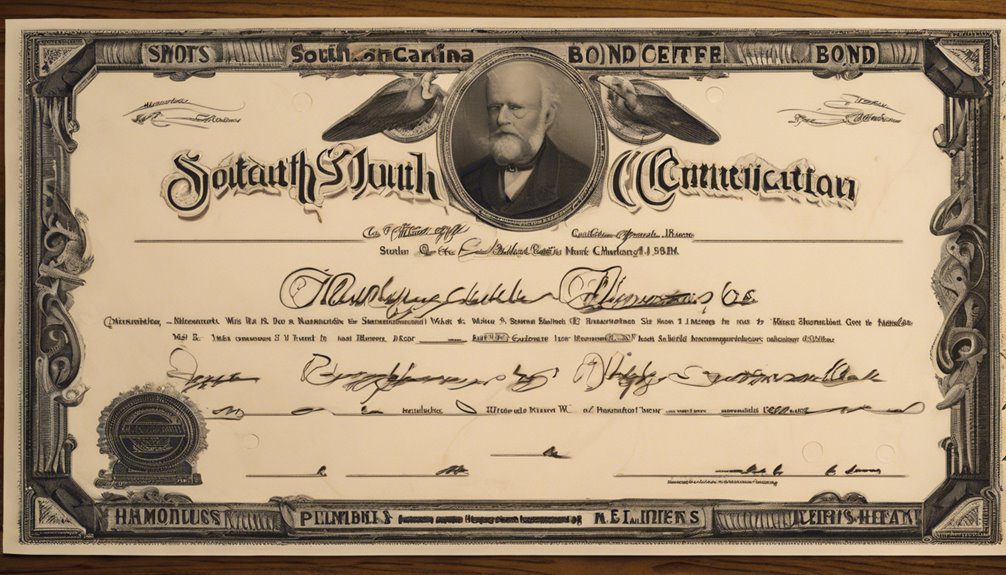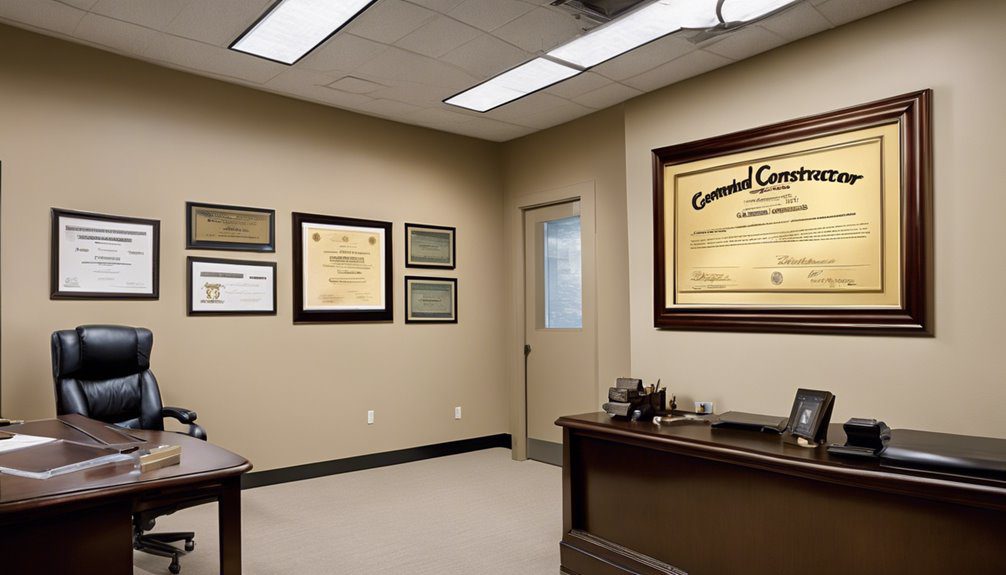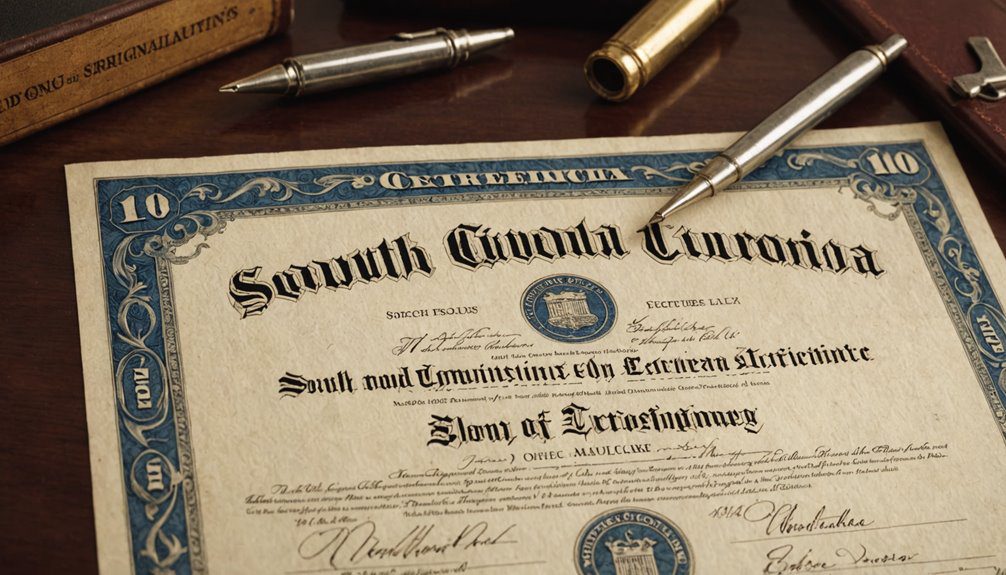If you're a licensed specialty contractor in South Carolina, understanding the bond requirement is crucial for your business. This $10,000 bond isn't just a formality; it's a protective measure that ensures you meet state regulations and maintain your credibility. You might wonder how this bond impacts your operations and what steps you need to take to secure and maintain it. The nuances of these requirements can significantly affect your future opportunities, and you won't want to overlook any detail. Let's explore what you need to know to stay compliant and safeguard your business.
Understanding Contractor Bonds

Understanding contractor bonds is essential for anyone entering the construction industry. These bonds act as a safety net, protecting clients and ensuring that contractors fulfill their obligations. When you obtain a contractor bond, you're essentially guaranteeing that you'll complete your work according to the contract terms. If you fail to do so, the bond provides a way for clients to seek compensation.
You might wonder why this matters. Having a contractor bond can significantly enhance your credibility and reputation. Clients feel more secure knowing they're working with a bonded contractor, which can lead to more job opportunities. Additionally, many states require specific contractor bonds to legally operate in the field, so it's crucial to know what you need.
Beyond the basics, it's important to understand the implications of not having a bond. Without it, you risk losing contracts and facing legal repercussions. Illinois Surety Bonds also play a vital role in ensuring financial security and compliance in the construction industry.
You must also keep in mind that bonds can vary in cost based on factors like your credit history and the type of work you do. Overall, grasping the ins and outs of contractor bonds will empower you as you navigate your construction career.
Types of Specialty Contractor Bonds
Several types of specialty contractor bonds exist, each serving a unique purpose within the construction industry. As a licensed contractor in South Carolina, you'll encounter a few key bonds that are essential for your operations.
First, there's the performance bond. This bond ensures that you'll complete your projects according to the contract terms. If you fail to do so, the bond provides financial protection to the project owner, covering any losses incurred.
Next, you'll find the payment bond. This bond guarantees that you'll pay all your subcontractors and suppliers on time. If any disputes arise, this bond protects the parties involved, ensuring they receive their due payments.
Then, there's the license bond. This bond is required for you to obtain your contractor's license. It shows that you comply with state regulations and standards, safeguarding the public against any potential misconduct.
Lastly, you might encounter a maintenance bond. This bond covers any repairs or maintenance needed after project completion, ensuring that you uphold your work quality for a specified period. Understanding these types of bonds is crucial for maintaining compliance with laws and regulations as a licensed contractor in South Carolina.
Importance of Having a Bond

Having a bond is vital for your success as a specialty contractor in South Carolina. It not only demonstrates your professionalism but also builds trust with your clients. When you're bonded, it shows that you're financially responsible and committed to meeting your obligations.
Clients are more likely to choose you over unbonded competitors because they feel safer knowing there's a safety net in place. If there's a dispute or if you fail to meet the terms of a contract, the bond protects your clients by ensuring they can recover their losses.
This added layer of security can set you apart in a competitive market. Moreover, having a bond can enhance your reputation, making it easier to attract new clients and secure larger projects.
In many cases, being bonded is a requirement to obtain necessary licenses or permits, which means you can't even start working without one. It's also a way to safeguard your business against potential claims and financial setbacks. Additionally, the bond acts as a form of financial security, ensuring funds are available if obligations are unmet.
Ultimately, being bonded isn't just a legal formality; it's a strategic move that can lead to greater success and stability in your contracting career.
Bond Requirements in South Carolina
In South Carolina, contractors typically need a bond amounting to $10,000 to operate legally as a licensed specialty contractor. This bond acts as a financial guarantee that you'll adhere to state regulations and fulfill your contractual obligations. It protects clients from potential losses caused by your failure to comply with laws or complete projects as promised.
To qualify for the bond, you'll need to demonstrate financial stability and a good track record in your field. Insurance companies or surety bond providers will assess your credit history and business practices before issuing the bond. If you've had issues in the past, like liens or unresolved complaints, it might affect your ability to secure the bond.
Additionally, you should be aware that the bond must be renewed periodically, usually every year. This ensures that you maintain your compliance with state regulations. Surety bonds help enhance credibility and trustworthiness within the industry.
Failure to keep your bond active can lead to penalties or loss of your contractor's license.
How to Obtain a Contractor Bond

Obtaining a contractor bond in South Carolina is a straightforward process when you know the steps involved.
First, you'll need to gather your necessary documents, including your contractor's license, proof of identity, and any relevant business information. This documentation is crucial for the bonding company to assess your application.
Next, research bonding companies that specialize in contractor bonds. You'll want to choose a reputable provider to ensure you get the best service and terms.
Once you've selected a company, fill out their application form. This may include providing details about your business and your work history.
After submitting your application, the bonding company will evaluate your credit history and financial stability. This assessment helps them determine the bond amount you can qualify for.
If you meet their criteria, you'll receive a quote for the bond. For example, in Texas, various contractor bonds have different requirements, such as the Plumber bond amount which is typically set at $5,000.
Once you agree to the terms, you'll need to pay the premium to secure your bond.
Costs Associated With Contractor Bonds
Understanding the costs associated with contractor bonds is essential for budgeting your business expenses effectively. When you apply for a bond, you'll typically encounter a premium, which is a percentage of the bond amount. This premium can range from 1% to 15%, depending on factors such as your credit score and the bond amount required.
Additionally, you might face administrative fees from the bonding company, which can also vary. It's crucial to ask about these fees upfront to avoid surprises.
Some contractors overlook the cost of renewing their bonds, which is another expense to consider as bonds usually need to be renewed annually.
Also, don't forget about potential collateral requirements. In some cases, bonding companies may ask for collateral to secure the bond, especially if your credit isn't stellar. This could mean tying up funds that you could have used for other business operations.
Lastly, factor in the time it takes to get approved for a bond, as delays can lead to additional costs in project timelines. By understanding these costs, you'll be better prepared to manage your financial commitments effectively. Furthermore, it is important to recognize that renewal requirements for bonds can vary by jurisdiction and may impact your overall budgeting strategy.
Maintaining Your Bond Status

Maintaining your bond status is crucial for the longevity of your contracting business. To keep your bond active, you need to stay informed about any requirements specific to your industry. Regularly review your bond agreement and ensure you understand the terms. This includes keeping up with renewal deadlines and payment schedules to avoid lapses in coverage.
You should also maintain a clean record by adhering to local laws and regulations. Timely completion of projects and addressing client concerns promptly can go a long way in building your reputation and avoiding claims against your bond. If a claim does arise, respond quickly and professionally to resolve the issue, as this can impact your bond status.
Networking with other contractors can provide valuable insights into best practices for maintaining your bond. Attend industry events and join local associations to stay connected.
Additionally, consider working with a reliable surety bond agent who can guide you through the process and help you understand any changes in regulations. Understanding the Ohio surety bond requirements is essential for compliance and maintaining your bond status.
Common Bond Violations
Bond compliance is essential for any contractor, yet many fall victim to common violations that can jeopardize their business. One major issue is failing to renew your bond on time. If you let it lapse, you risk losing your license and incurring penalties.
Additionally, not adhering to the terms set by your surety can lead to complications. For instance, if you neglect to follow safety regulations or standards, you may face claims against your bond.
Another frequent violation occurs when contractors misrepresent their qualifications or experience. This can result in serious repercussions, including bond cancellation.
It's also crucial to avoid engaging in fraudulent practices, as this not only affects your bond but could lead to legal action.
Lastly, failing to pay your subcontractors and suppliers can trigger bond claims, which may impact your financial stability. Surety bonds are essential for maintaining regulatory standards and protecting your business.
To maintain your bond status and protect your business, stay informed about your responsibilities and ensure that you're up-to-date with all regulations. By being proactive, you can minimize the risks associated with these common bond violations and keep your contractor business thriving.
Impact on Business Reputation

A solid business reputation can significantly influence your success as a contractor. When clients trust you, they're more likely to hire you for their HVAC, plumbing, or electrical needs. A good reputation helps you stand out in a competitive market, attracting more referrals and repeat business.
On the flip side, a poor reputation can lead to lost opportunities, as potential clients may choose competitors with better reviews.
Maintaining a strong reputation requires consistent quality work, reliable service, and clear communication. If you've secured the necessary bonds and licenses, it shows clients that you're serious about your profession. This compliance builds trust and demonstrates your commitment to operating legally and ethically. Moreover, private investigator bonds provide a financial safety net for clients against potential misconduct.
In today's digital age, online reviews and social media can quickly shape public perception. One negative review can tarnish your reputation, making it vital to respond promptly to any concerns. Addressing issues head-on can turn a dissatisfied customer into a loyal advocate.
Ultimately, your reputation is your most valuable asset. By prioritizing customer satisfaction and adhering to industry regulations, you'll not only protect your standing but also pave the way for long-term success in your contracting business.
Resources for Specialty Contractors
Building a strong reputation is just the beginning; having the right resources is vital for specialty contractors looking to thrive in their industry. As you navigate your career, consider leveraging professional organizations. Groups like the National Association of Home Builders (NAHB) and the Plumbing-Heating-Cooling Contractors Association (PHCC) offer valuable networking opportunities, training programs, and industry updates.
Don't underestimate the power of online resources. Websites like the U.S. Small Business Administration (SBA) provide essential information on starting and managing your business, including financing options and marketing strategies.
Social media platforms can also serve as effective tools for connecting with clients and showcasing your work.
Additionally, consider investing in software designed for project management and invoicing. These tools streamline your operations, allowing you to focus on delivering quality service.
Lastly, keep up with local regulations and licensing requirements through the South Carolina Department of Labor, Licensing, and Regulation. Staying informed ensures compliance and helps you avoid costly mistakes. Furthermore, understanding surety bond requirements can provide you with the necessary financial security and compliance for your contracting business.
Conclusion
In South Carolina, having a licensed specialty contractor bond is crucial for your business's success and credibility. It not only protects your clients but also ensures you comply with state regulations. By understanding the requirements and maintaining your bond status, you can avoid potential violations that could harm your reputation. Investing the time to secure and keep your bond active will pay off in the long run, helping you build trust and grow within the industry.


